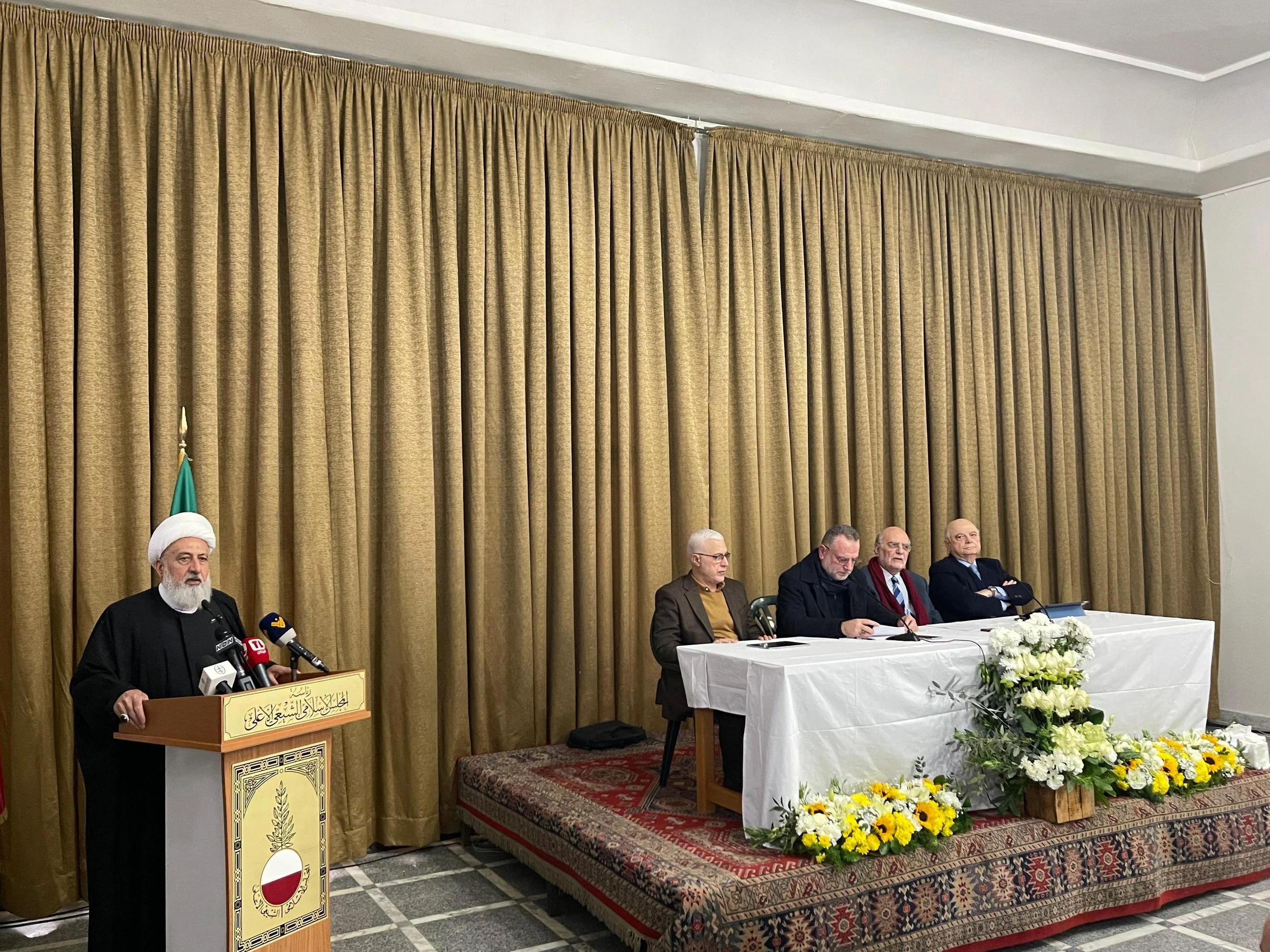The Supreme Islamic Shiite Council in Lebanon Holds a Symposium about the Thought
Of the Late Imam Sheikh Muhammad Mahdi Shams Al-Din
Sheikh Ali Al-Khatib: The basis of the Islamic religion rejects sectarianism but adopts sects and living with sects in peace
The MECC Secretary General Professor Dr. Michel Abs: Any word or action issued by the Scholar Imam Sheikh Muhammad Mahdi Shams Al-Din are deeply imprinted with the logic of dialogue that the Great Imam lives as a logic of life
Click Here to Check All the Photos.
On the twenty-fourth commemoration of the passing of Imam Sheikh Muhammad Mahdi Shams Al-Din, and under the patronage of the Scholar Sheikh Ali Al-Khatib, the Vice-President of the Supreme Islamic Shiite Council, the Supreme Islamic Shiite Council in Lebanon held a dialogue symposium about the thought of Sheikh Shams Al-Din, on Wednesday, February 5, 2025, at the headquarters of the Islamic Shiite Council in Hazmieh - Lebanon.
The symposium was moderated by Dr. Jihad Saad, and the speakers were the Editor-in-chief of Al-Liwaa Newspaper Mr. Salah Salam, the Secretary General of the Middle East Council of Churches (MECC) Professor Dr. Michel Abs, and the Dean of the Higher Doctoral School of Literature, Humanities and Social Sciences at the Lebanese University Dr. Hussein Rahal.
The symposium was attended by official, religious and social personalities, as well as Muslim and Christian Clerics, academicians, intellectuals and concerned people. Participants from the Middle East Council of Churches (MECC) were the Coordinator of the "Social Cohesion and Human Dignity" Program Professor Dr. Laure Abi Khalil, and the MECC media team.
After reciting hymns from the Holy Quran, a speech was delivered by the Scholar Sheikh Ali Al-Khatib, in which he indicated that Islam did not call Muslims to isolate themselves and live alone, stressing that the basis of the Islamic religion rejects sectarianism but adopts sects and living with sects in peace, and Imam Sheikh Muhammad Mahdi Shams Al-Din represents this depth. He added that Islam started in order to unite and not to divide, to unite those who have the right to have different visions, to produce what is new.
Afterwards, Dr. Jihad Saad delivered a speech in which he said: "We gather around the intellectual thought of Imam Sheikh Muhammad Mahdi Shams Al-Din to determine our position in the conflict between the science of authority and the authority of science." He also highlighted the characteristics of the Late Imam and his most prominent positions in various fields, and praised his language, methodology, and ability to root concepts without any affectation.
Then, Professor Salah Salam spoke about "Islamic unity in the thought of Imam Sheikh Muhammad Mahdi Shams Al-Din," stressing the Late's keenness to protect Islamic unity. He also recalled the most prominent stations and positions through which he worked to consolidate Islamic unity, which he considered the first foundation of national unity, emphasizing the formula of coexistence.
For his part, Professor Dr. Michel Abs spoke about the "The Eminent Scholar Sheikh Muhammad Mahdi Shams al-Din, Dialogue and Safeguarding the Nation”, and said: "His thought was characterized by openness and tolerance, and this openness and tolerance were also words coupled with action in the thought and path of the great Imam, and this is what was evident in his various positions related to many national affairs, which made any word or action issued by him deeply imprinted with the logic of dialogue that the Great Imam lives as a logic of life, and not as a temporary mechanism adopted for a certain period and set aside when the desired goal is achieved."
In his turn, Dr. Hussein Rahal spoke about the "reformist thought of Imam Sheikh Muhammad Mahdi Shams Al-Din: a reading of the methodology", shedding light on his intellectual life, which is divided into several stages, each of which has its own characteristics. He also touched on two major and fundamental stages, which are the stage of ijtihad, in which he presented the opinion of the institution to which he belongs, and the stage of renewal, in which he presented his own vision on many issues and matters.
At the end of the symposium, there were interventions, discussion and questions from the attendees.

